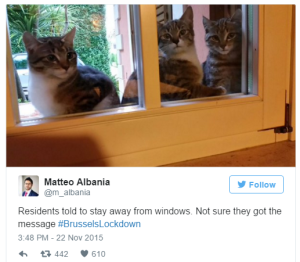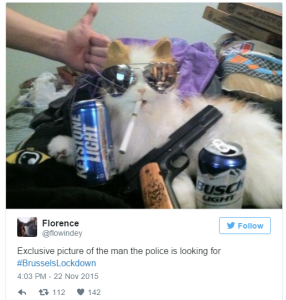It looks like the government is starting to make use of social media content in a proactive manner. They have been quietly rolling out a new program for the visa waiver travelers to try to add a layer of screening prior to arriving in the US. If you’re not aware, those traveling using a visa waiver have the right to stay in the US for up to 90 days without needing a visa.
With this new program, travelers are being asked to provide their user names for any social sites they may use. They are not asking for passwords or access to any private information. This is optional and whether or not a person provides this information has no bearing on their acceptance to enter the country.
According to a recent news article, the ACLU and other advocacy groups are taking issue with this too, stating that it may be used against some in a specific demographic, such as Muslims, and will increase their chances of not being able to enter the country.
The ACLU opposes this, stating this serves as “gateways into an enormous amount of [users’] online expression and associations, which can reflect highly sensitive information about that person’s opinions, beliefs, identity and community.”
Similarly, Access Now, a group advocating for users’ digital rights, shared this sentiment: “The choice to hand over this information is technically voluntary,” he said. “But the process to enter the U.S. is confusing, and it’s likely that most visitors will fill out the card completely rather than risk additional questions from intimidating, uniformed officers — the same officers who will decide which of your jokes are funny and which ones make you a security risk.”
I tend to disagree. By asking travelers to provide this information, it will expedite the screening process. If this information isn’t easily available, the government may need to conduct social media research in another format, which could be more time consuming and likely expensive.
I believe this is a good measure, at least at a start, to try to use social media as a screening tool. Obviously people can lie, or not share all of their social site usage, or just not complete it at all, but my hope is that those who want to travel to the United States will comply with this new request. After all, if they have nothing to hide, it shouldn’t be a problem. Further, since the only content that can be obtained is public facing anyway, it is already visible to those who wish to find it.
This appears to be a simple start to trying to better screen people entering the country. It is simplistic though and somewhat basic, and will only minimally help, because those likely to comply with this are not the threats the government is looking for. However, it is a good start and is a program that can be fleshed out over time to better protect us.






